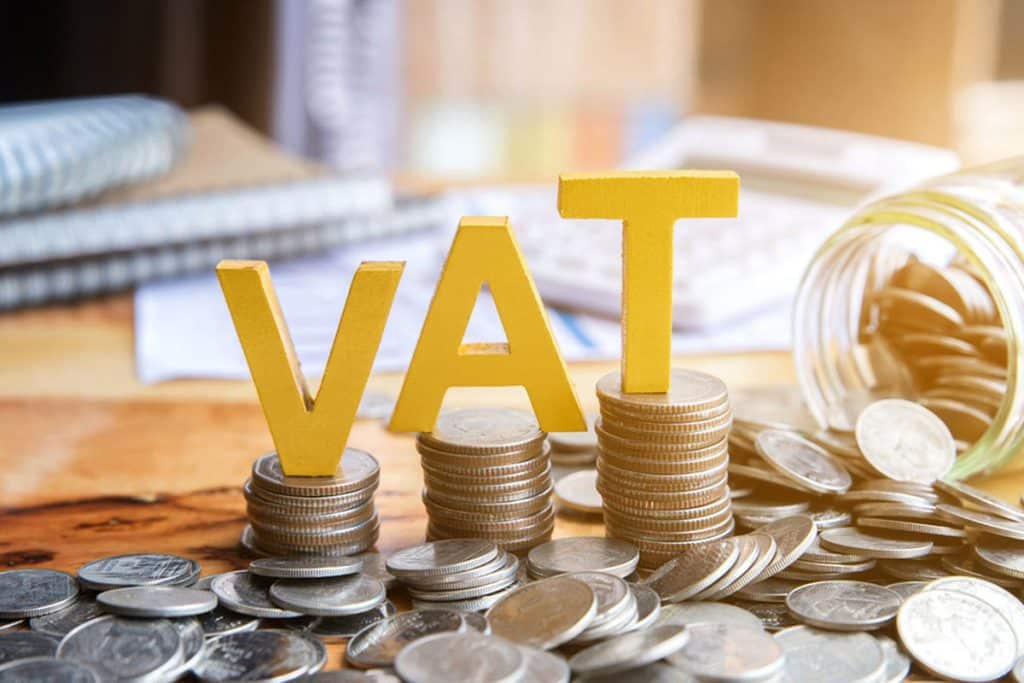+968 9596 3381
Phone Number
[email protected]
Email Address
Mon - Thu: 8:00 - 5:00
Online store always open
Phone Number
Email Address
Online store always open
WhatsApp Us Today
Drop Us an Email Today
Google Map Location
Saturday to Thursday
Since its introduction in April 2021, Value Added Tax (VAT) has become an integral component of Oman’s fiscal landscape, significantly impacting how businesses operate and manage their finances. As we look towards 2025, understanding the current VAT regulations, ensuring compliance, and staying abreast of any upcoming changes is not merely a legal obligation but a strategic imperative for every entity operating within or interacting with the Omani market.

Value Added Tax (VAT) in Oman has become a cornerstone of fiscal policy since its introduction in 2021. As we move into 2025, businesses must stay fully updated on the latest regulations, thresholds, compliance obligations, and enforcement mechanisms under the Oman VAT Law administered by the Oman Tax Authority.
Oman’s commitment to diversifying its economy and strengthening public finances through a robust tax system means that businesses must maintain meticulous records, apply the correct VAT treatments, and adhere to strict filing deadlines. While the core 5% VAT rate remains stable for 2025, important developments such as the phased rollout of e-invoicing on the horizon and clarifications in specific tax areas underscore the dynamic nature of the Omani tax environment. This comprehensive guide aims to demystify Oman’s VAT rules for 2025, provide crucial updates, and illustrate how partnering with experts like Setup in Oman can ensure your business remains fully compliant and avoids costly penalties.
Introduced: April 2021
Standard VAT rate: 5%
Administered by: Oman Tax Authority (OTA)
Applies to: Most goods and services, both local and imported
Legal basis: Royal Decree No. 121/2020
The VAT regime in Oman is aligned with the GCC Unified VAT Framework, while still tailored to the Sultanate’s national priorities.
Mandatory VAT Registration Threshold:
Businesses with annual taxable turnover exceeding OMR 38,500
Voluntary Registration Threshold:
Businesses with taxable turnover exceeding OMR 19,250 may register voluntarily to reclaim input VAT.
Non-resident businesses that provide taxable supplies in Oman must register regardless of turnover.
Sign up on the OTA VAT Portal
Submit business details, commercial registration, and ID documents
Receive your VAT Certificate and Taxpayer Identification Number (TIN)
Oman’s VAT system operates on principles largely aligned with the GCC Unified VAT Agreement, ensuring a degree of harmonization across the region.
Introduction Date: VAT was implemented in Oman on April 16, 2021.
Standard Rate: The standard rate of VAT in Oman remains at 5% for most goods and services. While there have been discussions about potential future rate adjustments to align with other GCC nations, the 5% rate is confirmed for 2025.
Zero-Rated Supplies (0% VAT): These are taxable supplies where VAT is charged at 0%, but businesses can still reclaim any input VAT incurred on related purchases. This effectively makes the supply VAT-free. Key zero-rated categories include:
Exports of goods and services outside the GCC.
Basic food items (as specified by the Oman Tax Authority – OTA).
Medicines and medical equipment (as specified by the OTA in coordination with competent authorities).
Supply of investment gold, silver, and platinum.
International and intra-GCC transport of goods and passengers, and related services.
Supply of means of air, sea, and land transport for commercial purposes (and related goods/services).
Rescue and assistance planes and boats.
Oil, oil derivatives, and natural gas.
Goods and services within designated Special Economic Zones and Free Zones, treated similarly to customs duty suspension situations.
Exempt Supplies: These are supplies where no VAT is charged, and importantly, businesses cannot reclaim input VAT paid on expenses related to these supplies. Key exempt categories include:
Financial services.
Healthcare services and related goods and services.
Educational services and related goods and services.
Undeveloped land (bare land).
Resale of residential properties.
Local passenger transport.
Renting properties for residential purposes.
Understanding the distinction between zero-rated and exempt supplies is crucial for accurate VAT calculation and input tax recovery. Misclassification is a common compliance pitfall.
| Rate | Description |
|---|---|
| 5% | Standard VAT rate for most goods and services |
| 0% | Exported goods/services, basic food, education, healthcare |
| Exempt | Residential rentals, financial services, public transport |
Zero-rated supplies can reclaim input VAT, whereas exempt supplies cannot.
Quarterly: Most companies
Monthly: Large businesses or as instructed by OTA
File via OTA’s online VAT portal
Submit sales, purchases, output/input VAT
Pay net VAT liability within 30 days from period end
More categories of foreign e-services are now subject to VAT, including AI tools, SaaS platforms, and cloud storage.
Businesses importing services must comply strictly with RCM rules and self-account for VAT.
New rulings for real estate, construction, and telecom sectors issued in Q1 2025.
Simplified refund procedures launched for exporters and GCC tourists leaving through airports.
Late filing penalties and interest now applied more uniformly across sectors.
| Zero-Rated | Exempt |
|---|---|
| Can claim input VAT | Cannot claim input VAT |
| Examples: exports, basic food | Examples: residential rent, finance |
| Reported in VAT return | Still reported, but treated differently |
Foreign and local digital service providers are increasingly being monitored under Oman’s e-commerce VAT regime.
Foreign digital businesses (e.g. SaaS, apps, games) must register if serving Omani customers
Marketplaces (like food apps or retail aggregators) may be held responsible for VAT collection
Some Free Zones and SEZs in Oman (e.g. Sohar, Salalah, Duqm) have special VAT treatment under designated zone rules, especially if goods are:
Exported
Re-exported
Supplied between designated zones
Custom documentation is required to validate VAT exemptions.
When importing services from abroad, VAT is accounted for by the recipient in Oman:
Declare both output and input VAT in return
No cash movement unless input VAT is disallowed
Helps ensure compliance with non-resident supplier rules
To effectively manage VAT in Oman, businesses must grasp several core concepts:
Input VAT vs. Output VAT:
Output VAT: The VAT collected by a business on its taxable sales of goods and services.
Input VAT: The VAT paid by a business on its purchases of goods and services used for its taxable supplies.
The net VAT payable or refundable to the OTA is the difference between Output VAT and Input VAT.
Taxable Person: Any individual or entity that conducts an economic activity independently for the purpose of generating income and is registered or required to be registered for VAT.
Tax Period: The timeframe for which VAT returns must be filed. In Oman, businesses are typically required to file quarterly VAT returns.
Tax Invoice Requirements: Registered businesses must issue valid tax invoices for taxable supplies. These invoices must contain specific information, including:
The words “Tax Invoice.”
Name, address, and VAT Identification Number (VATIN) of the supplier.
Date of issue.
Sequential invoice number.
Name, address, and VATIN of the recipient (if registered).
Description of goods/services supplied.
Quantity or volume of supply.
Unit price, exclusive of VAT.
VAT rate applied.
VAT amount payable.
Total consideration, inclusive of VAT.
Record-Keeping Obligations: All registered businesses are legally required to maintain accurate and complete accounting records, including tax invoices, credit notes, import/export records, and VAT return filings, for a minimum of 10 years. Failure to do so can result in substantial penalties.
Place of Supply Rules: These rules determine where a supply of goods or services is deemed to take place, which in turn dictates whether Omani VAT applies. Rules differ for goods (generally where delivery takes place) and services (generally where the recipient is located).
Reverse Charge Mechanism (RCM): For certain cross-border services or specific goods, the recipient of the supply (rather than the supplier) is responsible for accounting for VAT. This applies when a taxable person in Oman receives services from a non-resident supplier, or in certain designated sectors.
While the fundamental 5% VAT rate remains unchanged for 2025, the Omani tax landscape is continuously evolving, with several significant developments impacting businesses:
Phased E-invoicing Implementation (Starting Q3 2026): This is perhaps the most significant upcoming change for businesses. In May 2025, the Oman Tax Authority (OTA) signed an agreement to develop a national e-invoicing system. While mandatory e-invoicing is set to begin in a phased manner from Q3 2026, with full implementation by 2028, businesses should begin preparations in 2025. Oman plans to adopt the Peppol five-corner model for its e-invoicing system.
Impact: This will revolutionize how businesses issue, receive, and process invoices, enhancing transparency and compliance. Businesses should start evaluating their current invoicing systems, accounting software, and IT infrastructure to ensure readiness for this digital transformation.
New Law of Special Economic Zones and Free Zones: A new law passed in April 2025 codifies the rules for these zones. For qualifying enterprises, it confirms continued tax exemptions, including zero-rating or out-of-scope treatment for VAT. This reinforces the attractiveness of Free Zones for businesses involved in international trade and logistics, offering clarity on their VAT obligations.
Excise Tax Updates (from June 2025): Businesses dealing with specific goods (e.g., soft drinks, energy drinks, tobacco) should note the implementation of a Digital Tax Stamps scheme from June 1, 2025. Furthermore, the OTA has ceased setting “Standard List Prices” for excise goods, placing the onus on taxpayers to derive and evidence the Retail Sales Prices of their products. Discussions are also ongoing regarding potential new “plastic taxes” and “sugar taxes,” indicating a broader trend towards environmental and health-related taxation.
No Change to Standard VAT Rate in 2025: Despite regional variations and ongoing discussions about future alignments, the 5% standard VAT rate will remain in effect throughout 2025.
Focus on Compliance and Enforcement: The OTA continues to emphasize stringent compliance. Businesses should anticipate increased scrutiny, particularly concerning accurate record-keeping, correct classification of supplies, and timely filing.
Personal Income Tax (PIT) – Future Consideration: While not applicable to businesses or effective in 2025 (it comes into force on January 1, 2028), the recent announcement of a Personal Income Tax Law (for Omani tax residents earning above OMR 42,000 annually) signals Oman’s evolving tax policy and its commitment to diversifying revenue streams. While not a direct VAT update, it reflects the broader tax environment.
Businesses should proactively monitor official announcements from the Oman Tax Authority for further clarifications or new executive regulations that may emerge in 2025.
Understanding your VAT registration obligations is the first critical step towards compliance.
Businesses (individuals or legal entities) residing in Oman whose annual value of taxable supplies (or expenses, if higher) exceeded or is expected to exceed OMR 38,500 in the preceding 12 months, or is expected to exceed this threshold in the coming 12 months.
Non-resident businesses making taxable supplies in Oman are required to register for VAT, regardless of their turnover. They typically need to appoint a Tax Representative in Oman.
Businesses residing in Oman whose annual value of taxable supplies (or expenses, if higher) exceeds or is expected to exceed OMR 19,250.
Voluntary registration can be beneficial for businesses that primarily make zero-rated supplies or incur significant input VAT, as it allows them to reclaim input tax credits.
The Oman Tax Authority imposes severe penalties for non-compliance, including:
Failure to Register: Fines of OMR 5,000 to OMR 20,000 and/or imprisonment of 1 to 3 years.
Late Filing of VAT Returns: Fines of OMR 500 to OMR 5,000.
Failure to Display VAT Certificate: Fines of OMR 500 to OMR 5,000.
Incorrect VAT Return/Tax Evasion: Fines of 1% to 25% of the tax difference, or up to 300% of the evaded tax, plus potential imprisonment.
Failure to Keep Records for 10 years: Fines of OMR 1,000 to OMR 10,000 and/or imprisonment.




Businesses registered for VAT must maintain:
Sales and purchase invoices
VAT invoices (with TIN, VAT amounts, etc.)
Customs documentation (for imports/exports)
Electronic copies of filed returns
Records for 10 years
| Violation | Penalty |
|---|---|
| Failure to register | Up to OMR 10,000 fine |
| Delayed return filing | OMR 100 minimum + daily interest |
| Falsifying VAT records | OMR 5,000–20,000 or imprisonment |
| Incomplete VAT invoices | Fines starting from OMR 500 |
The Oman Tax Authority conducts regular VAT inspections and desk audits. Businesses may be asked to:
Justify input tax claims
Provide invoices and payment proofs
Reconcile differences between returns and bank statements
Failure to cooperate may result in assessments or legal action.
Always issue compliant VAT invoices with clear tax amount
Match your VAT returns with bank and accounting records
File returns on time — late payment = penalties
Seek advance rulings from OTA when in doubt
Use VAT software approved for Omani regulations
Is VAT registration mandatory in Oman?
Yes, if your taxable turnover exceeds OMR 38,500 in the past 12 months or is expected to exceed it in the next 12 months.
Can a small business register for VAT voluntarily?
Yes. If your turnover exceeds OMR 19,250, you may register voluntarily and claim input VAT.
Are healthcare and education services subject to VAT?
They are zero-rated, meaning VAT applies at 0% and businesses can reclaim input tax.
Is rental income subject to VAT?
Residential rent is VAT-exempt. Commercial rental is subject to 5% VAT.
How often are VAT returns filed?
Quarterly, unless the OTA requires monthly filing based on your business profile.
Are imports into Oman subject to VAT?
Yes. VAT is paid at customs unless deferred or exempted under specific rules.
Can I claim VAT on business entertainment?
Input VAT on entertainment and personal expenses is not recoverable under Oman VAT Law.





Contact Setup in Oman today for a consultation and let us help you achieve seamless VAT compliance and sustained success in the thriving Omani market.
The VAT registration process in Oman is primarily conducted online through the Oman Tax Authority’s eTax Portal.
Access the Portal: Log in to the OTA’s eTax portal using your digital authentication (ID card or phone number).
Initiate Application: Navigate to the E-Services section and select “Registration of a Taxpayer,” then choose “VAT liability registration.”
Enter Business Details: Provide comprehensive business information, including:
Legal Name, Trade Name.
Commercial Registration Number (CRN).
Tax Identification Number (TIN – if already held for other taxes).
Legal form of the business.
Business address, contact details, email ID.
Details of business activities and their start/end dates.
Financial information, including annual supply/revenue value for the preceding 12 months or projected for the next 12 months to determine the registration obligation.
Upload Supporting Documents: Typically required documents include:
Copy of Commercial Registration Certificate (CR).
Copy of Trade License.
Passport/ID copies of business owner(s) and partners.
Company’s Memorandum of Association (MOA) and Articles of Association (AOA).
Bank account details.
Income statement for the last 12 months (or equivalent financial records).
Review and Submit: Carefully review all entered data for accuracy before submission.
Receive VAT Certificate: Upon approval by the OTA, you will be issued a VAT Registration Certificate along with your unique VAT Identification Number (VATIN). This certificate must be prominently displayed at every location where the activity is conducted, and your VATIN must be included in all business documents, especially tax invoices.
Once registered, ongoing VAT compliance becomes a continuous responsibility:
Accurate Record-Keeping: Maintain all financial records, invoices, and documents meticulously and ensure they are readily accessible for at least 10 years.
Correct VAT Classification: Ensure that all your supplies are correctly classified as standard-rated, zero-rated, or exempt. Incorrect classification is a leading cause of penalties.
Timely Filing of VAT Returns: Adhere strictly to the quarterly filing deadlines via the OTA portal. Each tax period typically ends on the last day of the calendar quarter, and returns are generally due within 30 days following the end of the tax period.
Prompt VAT Payments: Any VAT due must be paid to the OTA within the stipulated 30-day deadline to avoid late payment penalties.
VAT Refund Mechanisms: Understand the process for claiming VAT refunds for excess input VAT (where applicable) from the OTA.
Regular Review: Periodically review your VAT processes, accounting systems, and internal controls to ensure ongoing compliance and adapt to any new regulations or updates from the OTA.
Navigating Oman’s VAT landscape, particularly with upcoming changes like e-invoicing, demands robust internal processes and often, external expertise. Setup in Oman offers a suite of services that are invaluable for seamless VAT compliance:
Company Formation: The foundational step for any business in Oman is proper company registration. Our Company Formation services ensure your business is legally structured and registered with MoCIIP, providing the necessary Commercial Registration (CR) that is a prerequisite for VAT registration with the Oman Tax Authority. We lay the groundwork for your tax compliance from day one.
Corporate Bank Account: Efficient financial management is critical for VAT compliance. Our team assists with opening your corporate bank account in Oman, ensuring you have the necessary financial infrastructure to manage VAT payments, receive refunds, and maintain transparent financial records required by the OTA.
PRO Services: VAT registration, filing, and ongoing compliance with the Oman Tax Authority can be complex. Our comprehensive PRO services extend to assisting with your VAT registration application, liaising with the OTA on your behalf, managing submissions of required documents, and ensuring your business adheres to all tax deadlines. We act as your compliance bridge to the Omani tax authorities.
Expert Tax Advisory: Beyond just setup, understanding the nuances of Oman’s VAT law, especially the distinction between zero-rated and exempt supplies, or preparing for e-invoicing, requires specialized knowledge. While not explicitly listed as a core service, a reputable company setup provider often offers or partners for tax advisory services to ensure your business remains compliant and optimizes its tax position.
Work Visa & Investor Visa: For business owners and key finance personnel residing in Oman, legal residency is paramount. Our Investor Visa and Work Visa services ensure that the individuals responsible for your company’s VAT compliance can legally live and work in Oman, facilitating seamless business operations and oversight of your tax obligations.
Fill out our quick and easy contact form below. Briefly tell us about your vision and goals, and we’ll be in touch shortly to discuss a personalized plan for your success.
Al-Khuwair, Muscat, Sultanate of Oman